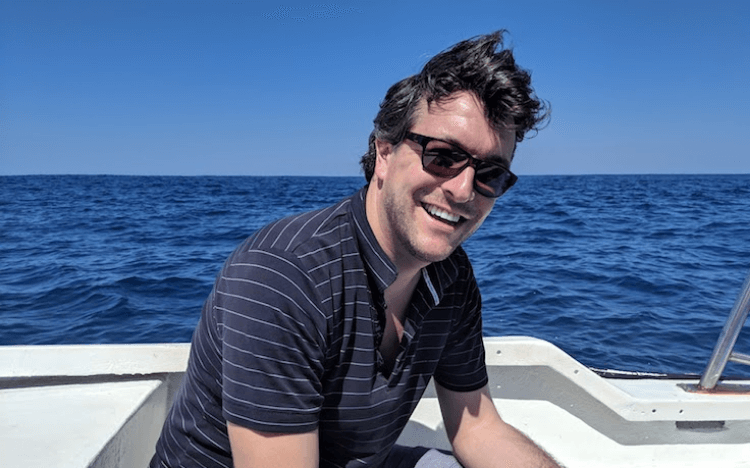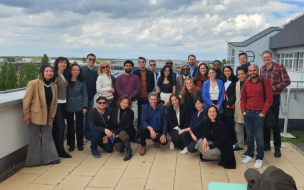You’ll find dozens of ROI calculators offering to calculate your predicted salary balanced against the cost of your MBA.
Given the high cost of many programs, particularly in the US, this isn’t unreasonable.
But is return on investment purely financial? What other factors do MBAs take into account when weighing up the hefty decision of MBA enrolment?
We spoke to two MBA alumni who offer a slightly different perspective on what return on investment looks like after graduation:
Scott Perry—“Broadening my business knowledge”

As a director at a computer software company in Ireland, an MBA didn’t seem like a necessary or likely path for Scott Perry.
Scott wasn’t necessarily thinking about advancing his salary; return on investment was about advancing his knowledge and skills in a tangible way for the next steps in his career journey.
“I didn’t have to be an expert in every area,” Scott notes.
“But an understanding of how the other functions that make up a business actually work is something I considered key and would allow more meaningful conversations with peer departments in my career."
The decision didn’t come lightly, particularly considering the significant time commitment and cost of a program.
“I found myself thinking, ‘Am I crazy spending this much money when some books claim I could do the same in two weeks?’” Scott remembers.
The program at EDHEC Business School in Nice, however, offered exactly what Scott felt he needed in order to get this return on investment.
Broadening his industry knowledge was helped by the diverse backgrounds—both professionally and culturally—of the MBA class at EDHEC.
“Getting to know and understand cultures from so many different professionals with such broad backgrounds, all with a shared passion for education, cannot be understated,” Scott insists.
In addition, this expanded Scott’s network, now having contacts and friends across the globe from a variety of industries.
Return on investment has been fairly clear for Scott, as he now works at the cutting edge of technology at an internet of things (IoT) connectivity provider in Berlin where he is Head of Customer Success & Customer Support.
And the cost incurred from the MBA? Scott has no doubts as to whether it was worth it.
“I could have purchased a pretty cool small car, or put a deposit on a house—M, B, and A are three pretty expensive letters,” he muses.
“But will it end up paying for itself? I think so, yes.”
Claudia Carrone—an unconventional career ‘triple jump’

Claudia Carrone was working as a business development consultant at a renewable energy company in Texas, when she decided she wanted an MBA to shake up her career.
Reflecting back on her decision to do an MBA, Claudia definitely considers it well worth it. She points in particular to her career ‘triple jump’—changing industry, position, and location—something she would have struggled to do without an MBA.
Around 37% of EDHEC MBA graduates are able to make this triple jump (see table).
But unlike many who would boast of the salary increase of a career jump, for Claudia, return on investment meant something quite different.
With an interest in innovation, Claudia happened to read about a pedagogical innovation lab at EDHEC, and knew she wanted to be part of it. Studying an MBA would be the first step.
“I saw that the school had innovation in their DNA, and thought it would be an amazing thing to be a part of,” Claudia remembers.
It also had a distinct appeal over the US schools which she had looked at, offering a shorter ten-month program at a much lower cost.
She can identify some very tangible skills which she gained from it, offering her the skills on how to deal with difficult situations and how to resolve conflicts.
Networking, too, was something significant that she gained from the program, and something which eventually landed her the current job she has working as a digital learning consultant at EDHEC.
“I didn’t actually present a resume for my current job,” she laughs, “I went around knocking on doors, using the courage and trust in myself that the MBA gave me.”
Thinking about her decision, Claudia doesn’t deny that an MBA is a significant commitment—but it is one that has definitely paid off.
“It’s true you have to invest a lot in terms of time and cost, but it’s worth it.”
Reflecting on her current job satisfaction, as well as her day-to-day life living and working on the south coast of France, the return on investment is pretty clear.








